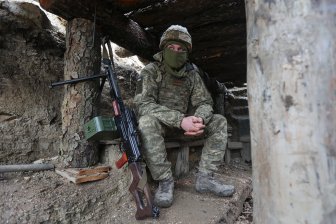Six more U.S. states confirmed infections of the Omicron variant of COVID-19 on Friday but the Delta strain likely remains a greater threat as winter sets in and Americans gather for the holidays, experts said.

New Jersey, Maryland, Missouri, Nebraska, Pennsylvania and Utah each reported their first cases of the Omicron variant on Friday. Missouri was awaiting CDC confirmation of a case involving a St. Louis resident who had recently traveled within the United States.
Scientists are still investigating the impact of the highly contagious Omicron variant, which was first detected in South Africa. Early evidence has suggested it may cause milder illness than its predecessors, including Delta.
The outbreak of Omicron has made worldwide headlines and prompted political leaders to impose new COVID-19 restrictions. But the predominant U.S. strain remains Delta, Rochelle Walensky, director of the U.S. Centers for Disease Control and Prevention (CDC), told a briefing at the White House.
The Utah case was discovered through ongoing genetic sequencing of positive COVID-19 samples at the state laboratory, the state’s health department said on Twitter.
Nebraska had six confirmed cases, the state’s health department said. Only one of the six people was vaccinated and none have needed to be hospitalized with COVID-19, the department added.
Maryland Governor Larry Hogan announced the first three cases of the Omicron variant in his state, adding that none of the three individuals were hospitalized. And in Pennsylvania, a Philadelphia man in his 30s tested positive for Omicron, city health officials said.
New Jersey Governor Phil Murphy said the state’s first Omicron case had been found in a fully-vaccinated woman who had recently traveled to Georgia.

A surge in infections could further strain U.S. hospitals already grappling with high case loads and fatigued staff, Dr. Ashish Jha, dean of Brown University’s School of Public Health, told MSNBC.
“I’m very worried about our healthcare system over the next few weeks and few months. I don’t know how much more it can handle,” he said, urging reinforcements from the National Guard and other contingency plans to bolster doctors and nurses.
Former FDA Commissioner Dr. Scott Gottlieb said states with higher vaccination rates would likely be better protected against Omicron, saying unvaccinated people who survived Delta could find their immunity is not protective against the new variant.
“The risk for the future is that states that are relying on a lot of Delta infections to provide immunity to their populations… they could be more susceptible to this new variant,” Gottlieb, now a member of vaccine maker Pfizer’s board, told CNBC.
Omicron has been detected in about 40 countries, including the United States, where it has also been found in California, Colorado, Hawaii, Minnesota, and New York.
The CDC said it was investigating possible cases of the Omicron variant in other U.S. states.
(Reporting by Caitlin Webber, Dan Whitcomb and Susan Heavey; additional reporting by Barbara Goldberg; editing by Tim Ahmann, Aurora Ellis and Rosalba O’Brien)
View link »© 2021 Reuters
Omicron found in 6 more states, but experts say Delta remains greatest threat to U.S. - Globalnews.ca
Read More



No comments:
Post a Comment